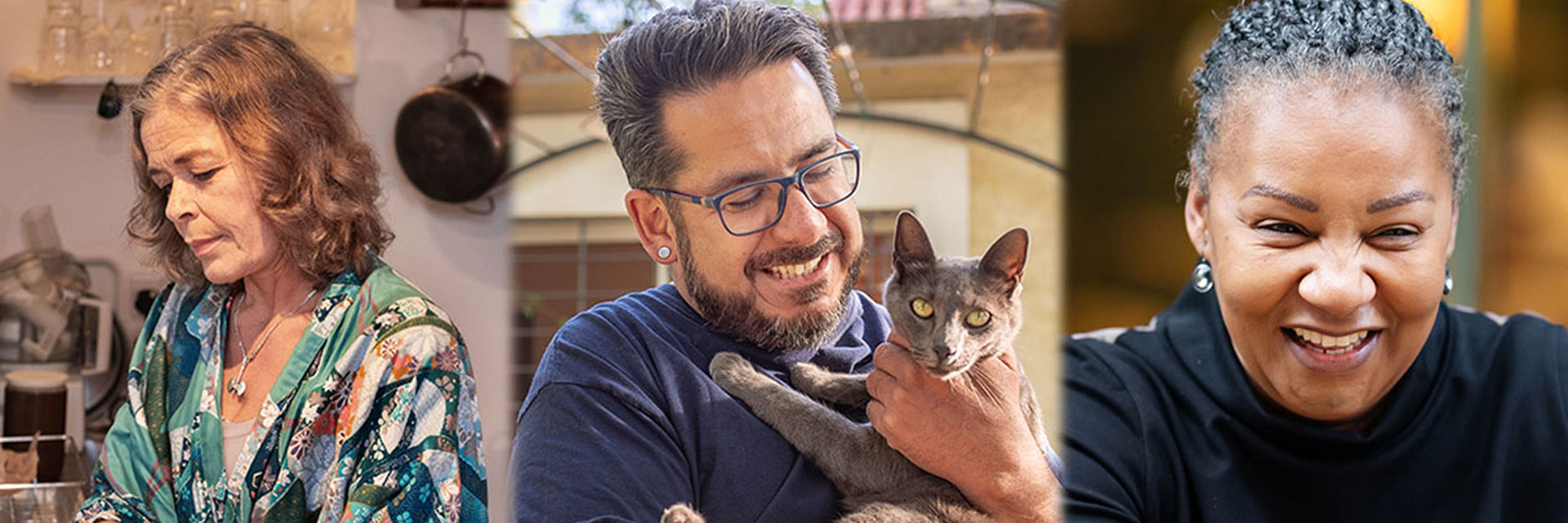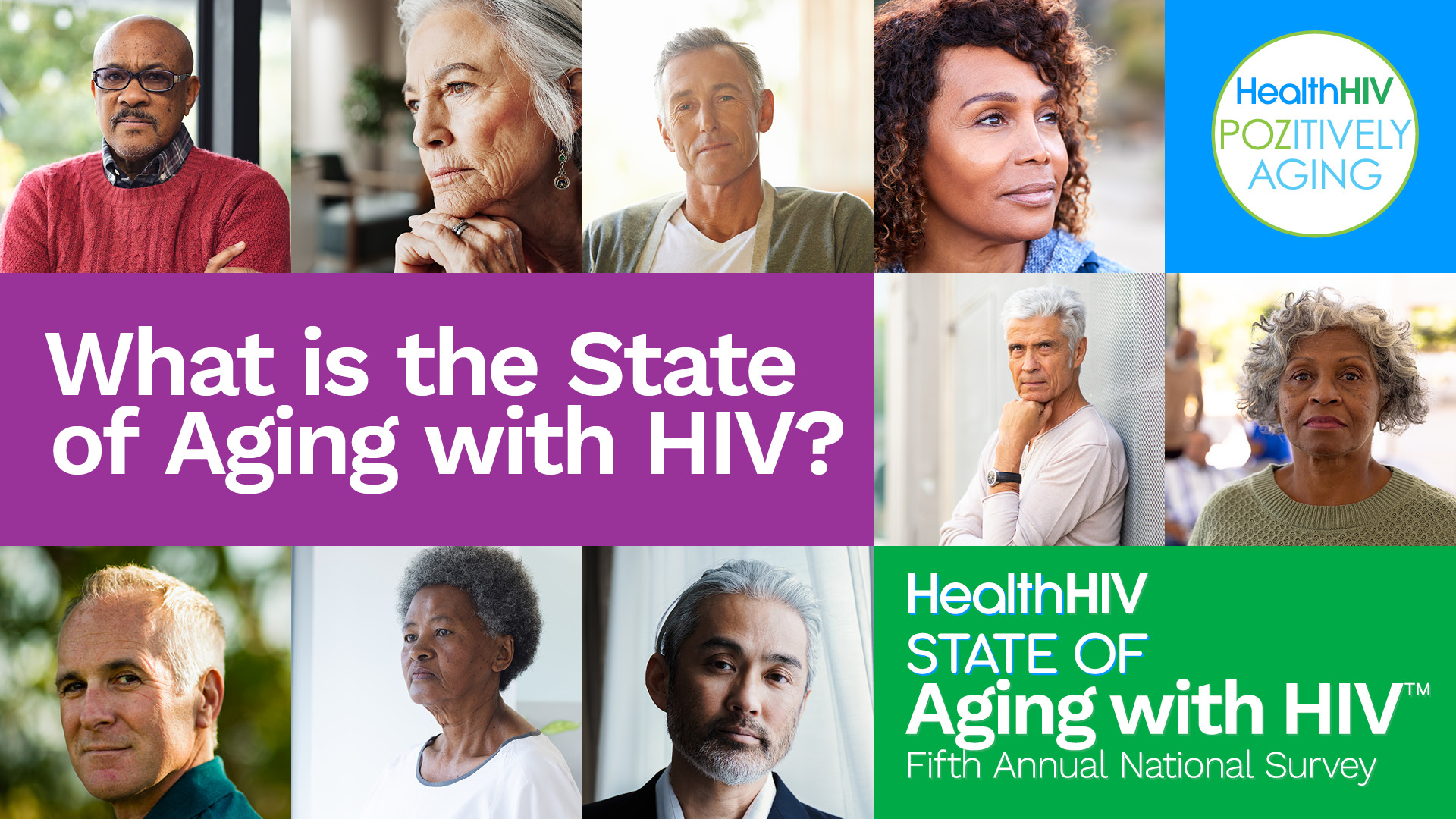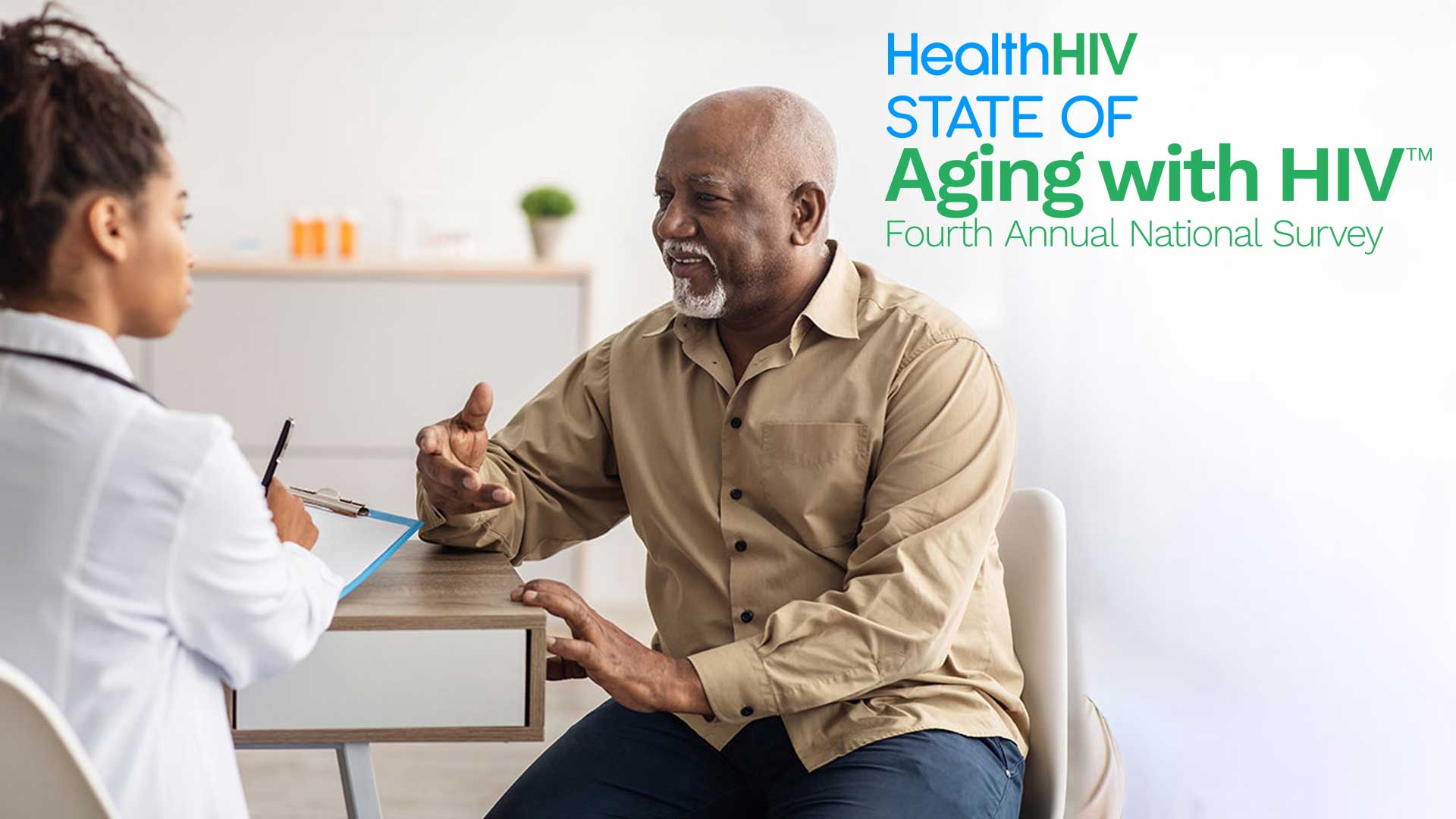
HealthHIV Pozitively Aging
HealthHIV’s Pozitively Aging program improves access to services and care coordination for people with HIV (PWH) over 50 and health outcomes through enhancing care coordination/access, health literacy, and patient-provider communications. Pozitively Aging offers consumer facing education materials to strengthen self-management of care and health literacy for people aging with HIV.

What is the State of Aging with HIV?
Are you a person aging with HIV or part of the healthcare workforce caring for people aging with HIV? Then you know that as people with HIV age, they often face unique challenges—from managing long-term complications of HIV to coordinating complex healthcare needs.
To enhance care coordination and address the clinical and social challenges associated with aging with HIV, HealthHIV has launched the Fifth Annual State of Aging with HIV™ National Survey. This survey seeks perspectives on aging with HIV from people in one or both of the following groups:
- People aging with HIV—particularly those who have been living with HIV for 15 years or more (including long-term and lifetime survivors), and adults aged 50 and older, with a specific focus on those aged 65 and above.
- Healthcare providers working with the HIV and aging community.
Your input will directly shape the future of HIV care and HealthHIV’s Pozitively Aging program.
Take the SurveyResources for Medicare Part D Open Enrollment, October 15 – December 7, 2025
The Medicare Access for Patient Rx (MAPRx) coalition, of which HealthHIV and the National Coalition for LGBTQ Health are members, continues to help educate Medicare beneficiaries and providers on how the system works, especially during the Medicare Open Enrollment period, which this year runs from October 15 to December 7, 2025.
MAPRx Recent Medicare Part D Changes, September 2025
This infographic from MAPRx describes Medicare Part D changes that may help with out of pocket costs.
MAPRx 2026 Open Enrollment Guide
This guide can help find answers to some important questions that can help you during the Annual Open Enrollment.
MAPRx MPPP Patient Guide for 2026
This guide from Medicare Access for Patients Rx describes the Medicare Prescription Payment Plan and helps patients decide if it is right for them.



